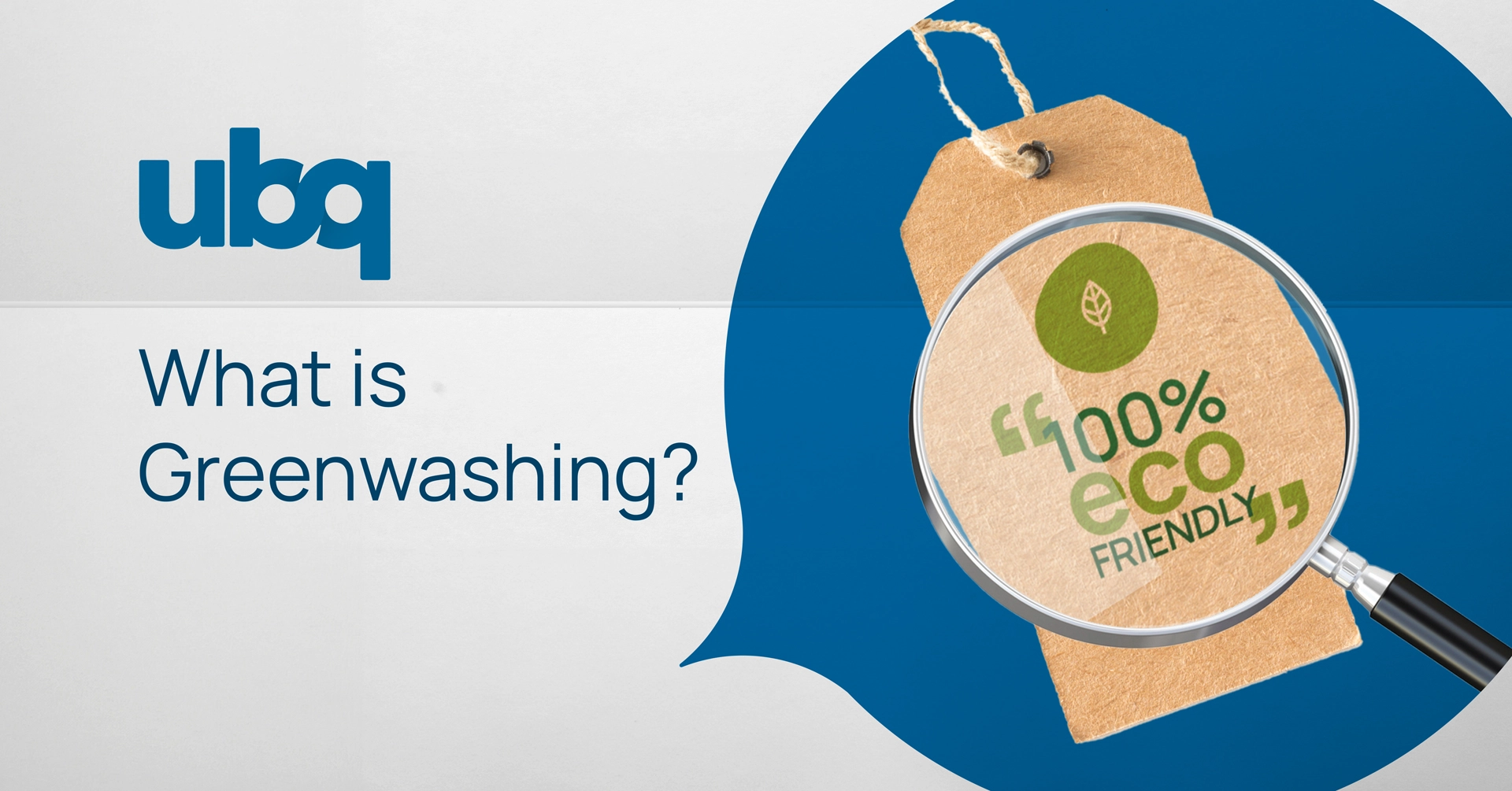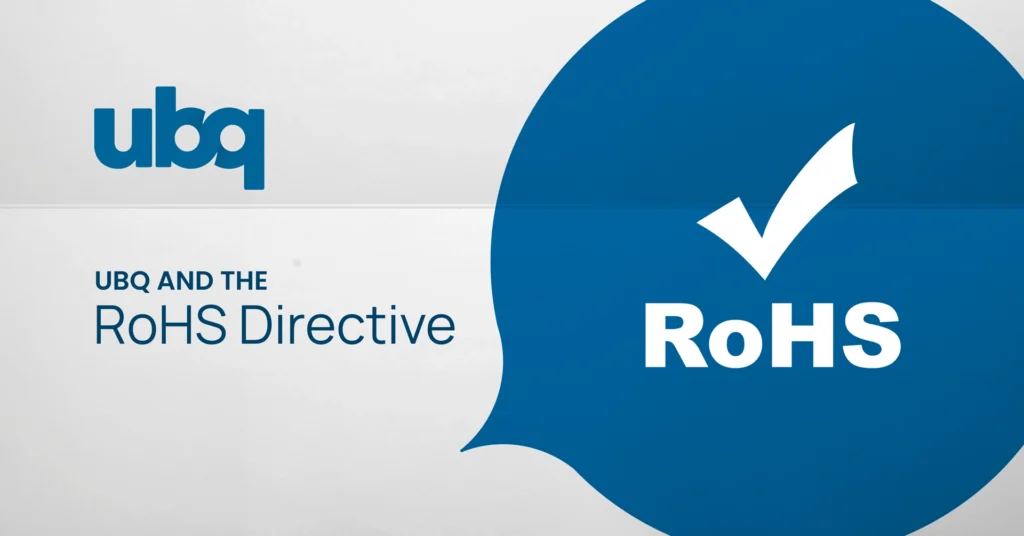In today’s sustainability-driven world, consumers are increasingly seeking out environmentally friendly products and practices. But amid the rise in “green” branding, it’s becoming harder to tell which companies are genuinely committed to the planet and which are simply taking advantage of consumer demand for eco-conscious products.
This misleading practice is known as greenwashing. To help us understand this complex issue, we turn to John Elkington, a pioneer in sustainability and the mind behind the Triple Bottom Line concept.
In a recent UBQ Talks interview, John Elkington breaks down the essence of greenwashing and its various forms. (See the embedded video below for his full insights.)
What is Greenwashing?
Simply put, greenwashing occurs when companies mislead consumers by claiming their products or practices are more environmentally friendly than they truly are.
As John Elkington explains in the video, greenwashing includes any effort to promote sustainability that is either false or exaggerated. This can take many forms, including unsubstantiated claims about a product’s impact on the environment or branding that suggests eco-friendliness without any real action behind it.
As sustainability has become a priority in modern business, companies want to show they are part of the solution. However, too often, they may promise to adopt green practices but fail to follow through, leaving their consumers—and the planet—shortchanged.
Common Greenwashing Terms
Many companies engage in greenwashing by using broad, appealing terms to create an impression of environmental responsibility. Phrases like “eco-friendly,” “green,” “sustainable,” and “good for the planet” are often seen in marketing, but they are meaningless if not backed by evidence.
For instance, a product labeled as “biodegradable” may only break down under specific, rare conditions, rendering the claim deceptive for everyday use.
It’s important for consumers to scrutinize these claims and look for certifications or transparent data to verify their legitimacy. If there’s no proof to back it up, it’s likely greenwashing.
Other Forms of Greenwashing: ESG and SDG Washing
Greenwashing isn’t limited to environmental claims. John Elkington also discusses ESG (Environmental, Social, Governance) washing and SDG (Sustainable Development Goals) washing in the UBQ Talks interview.
- ESG Washing: This occurs when companies highlight their environmental or social efforts while failing to address governance issues, such as labor practices or executive accountability. They may release high-profile reports on their environmental progress but ignore serious governance flaws in their operations.
- SDG Washing: Companies may claim alignment with the UN’s Sustainable Development Goals (SDGs) without taking meaningful action to achieve these objectives. For example, a company might tout contributions toward SDG 13: Climate Action without making any tangible reductions in emissions.
In both cases, these forms of greenwashing stretch beyond environmental issues to include misrepresentation of broader ethical commitments.
How Companies Get Caught Greenwashing
Greenwashing can have serious consequences. Companies can face fines, lawsuits, and significant reputational damage when caught. Here are two hypothetical examples:
- Example 1: A fashion company claims its new clothing line is made of “100% sustainable materials.” However, a closer inspection reveals that they’ve used only a small percentage of recycled fibers, with the majority coming from virgin materials, making the claim false and misleading.
- Example 2: A tech company markets its electronics as “made from recycled components,” but upon investigation, it’s revealed that their products contain minimal recycled content, and the manufacturing process is highly energy-intensive.
In cases like these, consumer protection agencies and regulatory bodies like the SEC may step in to ensure accountability. Without credible evidence, companies risk more than just fines—they risk losing consumer trust and long-term brand equity.
Why It Matters
As John Elkington emphasizes in his talk, trust is key to the future of sustainable solutions. For consumers to believe in a company’s commitment to the environment, businesses must provide tangible proof of their actions. The rise of skepticism toward environmental claims is a necessary step in building a marketplace where true sustainability is rewarded, and false promises are exposed.
While we may hope that greenwashing is a temporary trend, John Elkington reminds us that it’s likely to persist due to human nature. However, as consumers become more informed and regulatory bodies tighten their oversight, greenwashing will become harder for companies to get away with.
With increased regulatory scrutiny, particularly in regions like the EU, greenwashing cases have started to decline for the first time in six years, making it even more critical for companies to ensure their sustainability claims are transparent and credible.
Conclusion
In today’s marketplace, consumers are increasingly demanding transparency from the brands they support. It’s essential to remain critical of vague sustainability claims and to ask for evidence. As many companies have come to realize, empty promises can lead to costly consequences when they fail to live up to their claims.
By holding businesses accountable and rewarding those who are truly committed to the environment, we can all play a role in creating a greener future—one that’s built on honesty, not just marketing.
About John Elkington
John Elkington is a world-renowned authority on corporate sustainability and a pioneer of the Triple Bottom Line concept, which emphasizes environmental, social, and economic responsibility in business.
With decades of experience, Elkington has authored numerous influential books on sustainability and is a thought leader in the field. He has served as an advisor to companies and governments globally and is a member of the UBQ International Advisory Board, contributing his expertise to promote genuine sustainability efforts in various industries.



